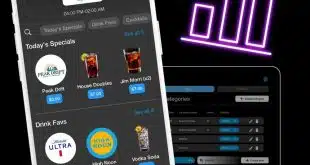Reflecting recent trends noted by the payment card networks, merchant processor Heartland Payment Systems Inc. reported on Thursday that it is beginning to see a turnaround in charge volume at merchants battered for the past two years by the retrenchment in consumer spending. Heartland also disclosed that it has expensed a net of nearly $109 million in costs related to its data breach, the biggest ever in the payments industry.
Princeton, N.J.-based Heartland said that processing volume in its small and mid-sized merchant segment totaled $14.4 billion in the first quarter, up 7.2% from $13.4 billion a year earlier. In March, Heartland merchants saw their first increase in same-store sales in nearly two years, chairman and chief executive Robert O. Carr told analysts. Volume in the company’s Network Services unit of petroleum and other larger merchants rose 24% to $2.5 billion from $2.01 billion in 2009’s first quarter. In all, Heartland recorded charge volume of $17.0 billon, up 9.5% from $15.5 billion in the prior-year period.
Nearly $400 million of the first-quarter volume came through Discover cards at locations signed by Heartland and just over $200 million from Heartland’s American Express acceptance program. Asked by an analyst about merchant reception to American Express, the costliest card brand to accept, president and chief financial officer Robert H.B. Baldwin noted that, “merchants are looking for ways to maximize their sales, and they know that by embracing all forms of payment they’re going to have a better chance of not leaving any sales on the table.”
Restaurants, a big merchant segment for Heartland, and some other categories are still struggling, however. And new merchants are getting harder to find: volume from new account boardings fell 27% from a year ago. “The market for new customers is smaller than it was a year ago due to merchants out of business, and remains fiercely competitive,” Baldwin said.
Heartland also has taken some “non-trivial” losses on merchant accounts, in part because of the weak economic recovery and also because of a risk-control manager who “neglected some violently waving red flags,” Baldwin said. “That was a situation that was taken care of and should not happen again,” he said.
Meanwhile, Heartland said it has expensed a total of $139.4 million in costs related to the data breach between the time the company disclosed it in January 2009 through March 31, 2010. Insurance recoveries have brought in $30.7 million, for a net expense of $108.7 million. Costs include settlements of lawsuits with Visa Inc. for $59.2 million (Digital Transactions News, Jan. 8) and American Express Co. and its card-issuing partners for $3.54 million (Digital Transactions News, Dec. 22, 2009), security fixes, and other items. Heartland has a $42.8 million reserve for future settlements and related expenses. The breach comprised an estimated 130 million payment cards, according to the U.S. Attorney for New Jersey. Several defendants implicated in the Heartland and other breaches have pleaded guilty (Digital Transactions News, April 1).
After the breach, Heartland embraced end-to-end data encryption to enhance its security. It received the first of its new “E3” encrypting point-of-sale terminals May 1, and shipments will begin later this month, Carr said. Heartland also will offer an encrypting card swipe, or wedge, to merchants using other POS equipment.




